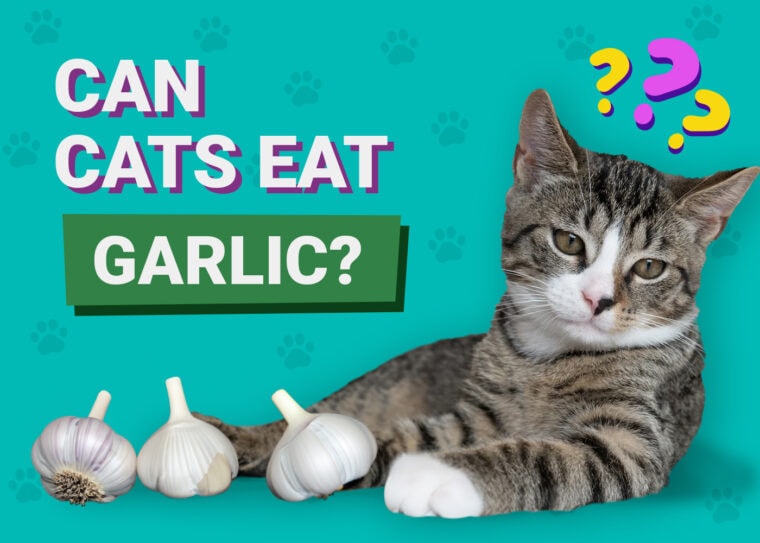
Click to Skip Ahead
If you have heard about garlic and onion being poisonous to dogs but never learned the safety of these for cats, read our article below. Garlic contains a chemical compound called sodium n-propyl thiosulfate, which causes extreme damage to a cat’s blood cells, so cats should avoid garlic at all costs.
In the article below, you’ll also find what to do if your cat does ingest garlic.
Can Cats Eat Garlic?
Garlic and any other plants from the Allium family are unsafe for cats to consume and are considered toxic. Garlic is harmful to cats whether cooked or raw, and should be avoided altogether. Garlic and other plants in this family contain a substance toxic to cats and other pets called sodium n-propyl thiosulfate. Consuming garlic can cause hemolysis in cats, severely damaging blood cells, and eventually leading to their breakdown. Eventually, your cat may get anemia, which is your cat’s organs not getting enough oxygen, potentially leading to organ failure.
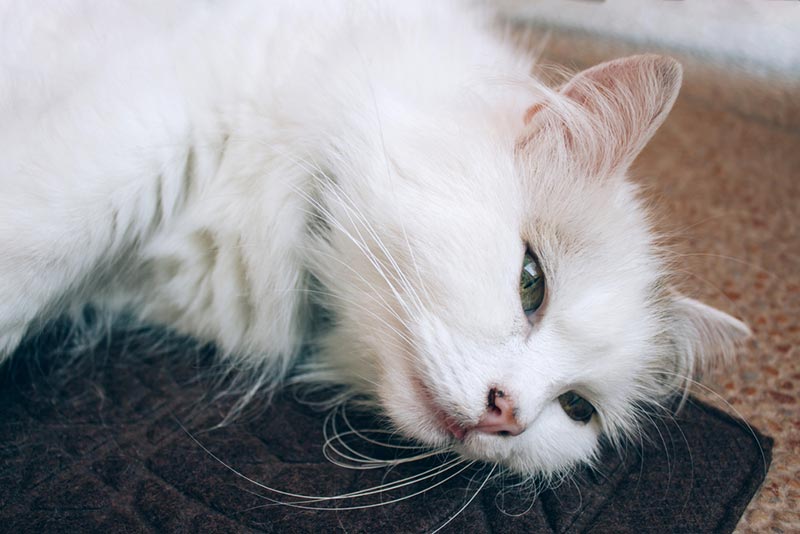
Signs of Garlic Poisoning
If your cat has consumed garlic, onion, or other alliums, several signs will usually appear soon after. Gastrointestinal symptoms will occur 6 to 24 hours after ingesting garlic.
The most common signs indicating garlic poisoning in cats are:
If you notice any of these symptoms, get your cat to the nearest veterinary clinic as soon as possible.
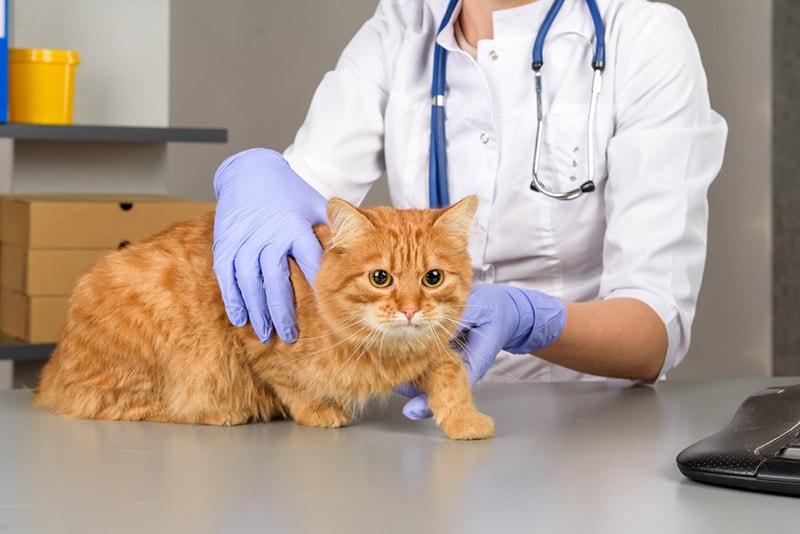
Treating Garlic Poisoning in Cats
Once you take your cat to the vet, your veterinarian may try to administer activated charcoal to bind any toxins in the stomach. If your cat has consumed garlic in the last 2 hours, your vet may also induce vomiting. In more severe cases, your cat will need to be hospitalized with IV fluids and sometimes even a blood transfusion. However, these are more severe cases, and most cats recover from mild garlic ingestion without any long-term complications.
It is always best to prevent garlic poisoning than to have to treat it, so make sure never to leave out any garlic for your cat to ingest accidentally.
Ideal Cat Diet
As with other pets, cats need to have a healthy and well-balanced diet to ensure their proper growth and optimal health. Since cats are carnivores and natural predators, they rely on animal-based products for their primary nutrient sources. Many options are available for your cat’s diet, such as commercial, wet, dry food, or homemade meals.
Kittens
Kittens should be fed food specially made for this life stage to ensure their bodies, bones, and joints develop healthy and strong. When kittens are 3 weeks old, they can begin eating solid food. The mother’s milk should supplement the solid food to make the transition smooth and as digestible as possible. Any diet changes need to occur gradually to avoid upsetting their stomach. As your kittens grow, you can slowly reduce the number of meals they have.
Adult Cats
When your cat reaches maturity and adulthood, at around a year old, they can start eating food that helps keep the ideal body weight and provide them with plenty of energy. You’ll need to consider any special diets, such as weight-loss diets or diets for sensitive stomachs.
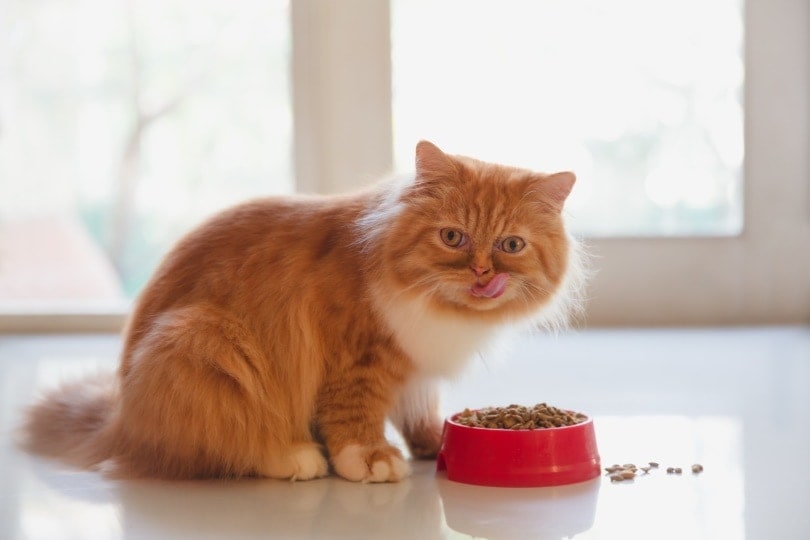
Senior Cats
As your cat ages, its diet must meet its more mature needs. A cat is usually considered a senior between ages 7 and 10. The age-appropriate cat food is needed to support proper organ function in senior cats and maintain healthy body weight and muscles.
 Vegetables That Are Safe for Cats
Vegetables That Are Safe for Cats
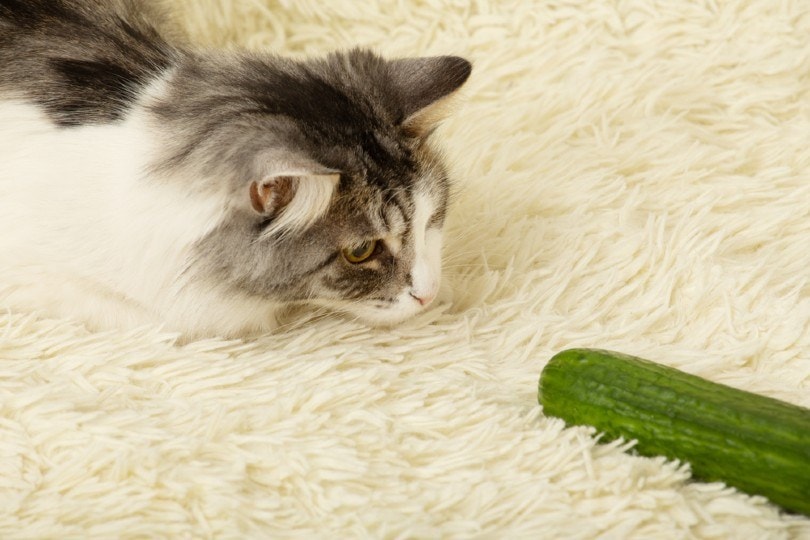
Vegetables That Are Not Safe for Cats
Knowing exactly what your feline companion can and cannot eat will help you become the best pet parent. Recognizing that not all cat bowls are equal is also key! The Hepper NomNom Cat Bowl sets itself apart from traditional options by catering to the specific needs of cats. The innovative design offers whisker relief via shallow dishes and promotes digestion with a slight bowl elevation. Find out if the Hepper NomNom is right for your cat by clicking here.
At Pet Keen, we’ve admired Hepper for many years and decided to take a controlling ownership interest so that we could benefit from the outstanding designs of this cool cat company!
Final Thoughts
Once you learn about the dangers of feeding your cat garlic, onions, or any other plant from the allium family, you will know to stay clear of these vegetables. Since they can be highly toxic for our pets and even fatal on some occasions, we want to avoid them altogether. Accidentally ingesting small amounts of garlic can even cause your cat diarrhea or vomiting, so make sure to prevent this from ever happening.
Featured Image Credit: gresei, Shutterstock







